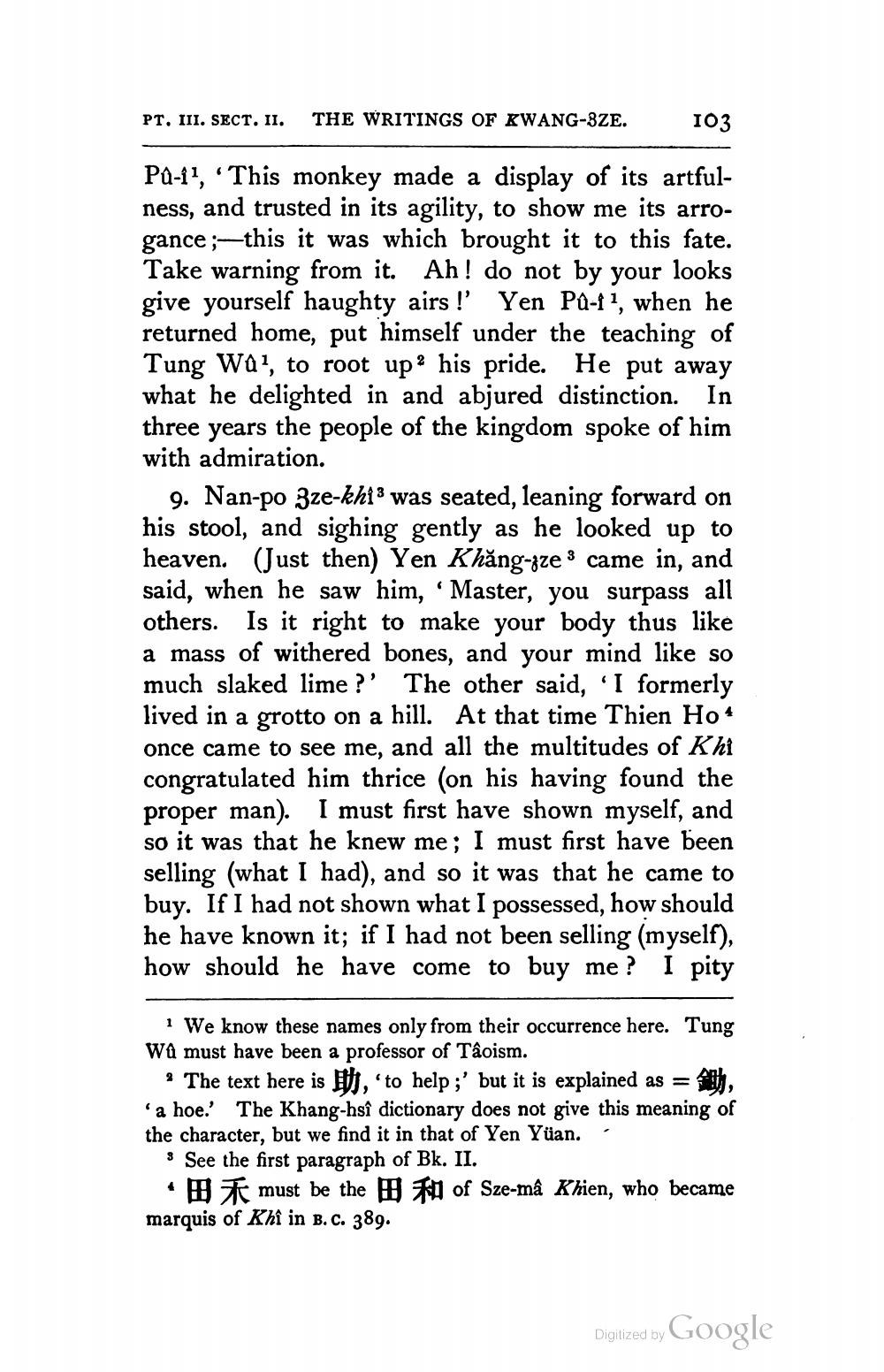________________
103
Pû-i', 'This monkey made a display of its artfulness, and trusted in its agility, to show me its arrogance; this it was which brought it to this fate. Take warning from it. Ah! do not by your looks give yourself haughty airs!' Yen Pû-11, when he returned home, put himself under the teaching of Tung Wû1, to root up his pride. He put away what he delighted in and abjured distinction. In three years the people of the kingdom spoke of him with admiration.
PT. III. SECT. II. THE WRITINGS OF KWANG-8ZE.
9. Nan-po 3ze-khi3 was seated, leaning forward on his stool, and sighing gently as he looked up to heaven. (Just then) Yen Khăng-ze3 came in, and said, when he saw him, 'Master, you surpass all others. Is it right to make your body thus like a mass of withered bones, and your mind like so much slaked lime?' The other said, 'I formerly lived in a grotto on a hill. At that time Thien Ho1 once came to see me, and all the multitudes of Khi congratulated him thrice (on his having found the proper man). I must first have shown myself, and so it was that he knew me; I must first have been selling (what I had), and so it was that he came to buy. If I had not shown what I possessed, how should he have known it; if I had not been selling (myself), how should he have come to buy me? I pity
1 We know these names only from their occurrence here. Tung Wû must have been a professor of Tâoism.
The text here is, 'to help;' but it is explained as = 鋤, 'a hoe.' The Khang-hsî dictionary does not give this meaning of the character, but we find it in that of Yen Yüan.
See the first paragraph of Bk. II.
must be the marquis of Khi in B. c. 389.
4
of Sze-mâ Khien, who became
Digitized by Google




